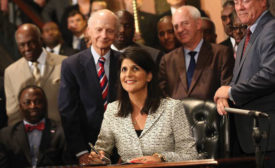Energy Management News
Study positions the U.S. as strong participant in the global green movement
Read More
Better Buildings Accelerators Drive Uptake of Home Upgrades
These initiatives help homeowners save money, while creating local jobs
March 25, 2016
PNNL to Help Advance Algorithms for Energy-Efficient Buildings
Algorithms could improve lighting and heating and cooling systems
March 24, 2016
Seattle Passes New Energy Efficiency Ordinance
City’s new energy legislation addresses three areas
March 23, 2016
South Carolina Approves Geothermal Tax Credit
H 3874 provides an income tax credit to any individual or business installing geothermal
March 21, 2016
DOE Recognizes Orlando Better Buildings Partners for Energy Efficiency Upgrades
Office tower One Orlando Centre is expected to save nearly 18 percent in energy costs
March 17, 2016
Majority of Americans Choose Energy Efficiency for the Savings it Provides
Results of HomeServe Biannual State of the Home Survey
March 17, 2016
OpTerra Energy Services Opens San Diego Office
OpTerra works with private- and public-sector facilities to reduce energy consumption
March 15, 2016
Building Energy Management Market to Grow at 12% CAGR to 2021
Building energy management solutions are being widely employed in the commercial sector
March 14, 2016
Copyright ©2024. All Rights Reserved BNP Media.
Design, CMS, Hosting & Web Development :: ePublishing


